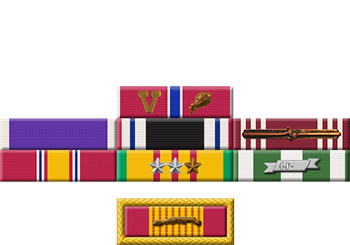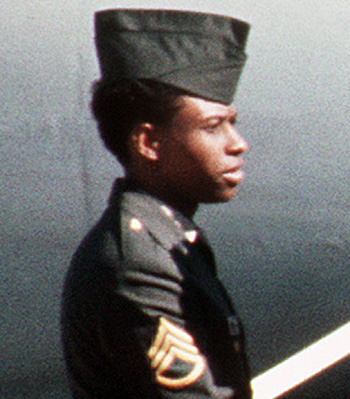Bobby Johnson was born in 1946 in Detroit, Michigan. He enlisted in the U.S. Army on February 6, 1967, and completed basic training at Fort Knox, Kentucky, in April 1967. Pvt Johnson then attended Advanced Individual Training at a heavy truck driver at Fort Dix, New Jersey, from April to May 1967, followed by service as a heavy truck driver with the 321st Transportation Company at Fort George Meade, Maryland, from June 1967 to June 1968. His next assignment was as a heavy truck driver with the 62nd Transportation Company in South Vietnam from June 1968 until he was captured and taken as a Prisoner of War on August 25, 1968. After spending 1,633 days in captivity, SSG Johnson was released during Operation Homecoming on February 12, 1973. He was briefly hospitalized to recover from his injuries at Fort Knox and left active duty and received an honorable discharge from the Army on June 29, 1973.
His 2nd Bronze Star Medal w/Valor Citation reads:
Staff Sergeant Bobby L. Johnson distinguished himself by heroic actions against an enemy force of the United States of America while serving as a Prisoner of War in Cambodia from 30 May 1972 to 20 June 1972. Staff Sergeant Johnson conducted himself in a highly commendable manner during a confrontation between the senior ranking officer of the prison camp, Lieutenant Colonel Schrump, and the prison camp officials and cadre. The senior ranking American officer had been ordered to make bamboo stakes for perimeter security of the prison camp since they would serve as a deterrent to prisoners in any attempt to escape. Refusing to obey this order, the colonel was threatened and punished for many days, and, although suffering from malaria, was refused medical aid. Realizing that their punishment would not change the colonel's mind, the prison camp officials then refused to give him food or water. At hearing this, although weak and suffering from severe malnutrition, Staff Sergeant Johnson endangered his well-being by giving the colonel his full support by refusing to eat or drink until the camp cadre gave Colonel Schrump food and water. This condition continued for several days until a final decision was made and Colonel Schrump was returned to his cell, given food and water, and normal camp life was restored. During this period, Staff Sergeant Johnson's courage, aggressiveness, and leadership by example were in the highest traditions of the military service and reflected great credit upon himself and the Untied States of America.
|



